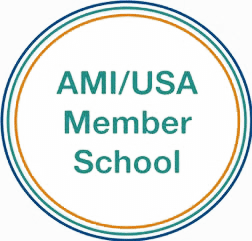Young children are often compared to sponges, soaking up information at an astonishing rate. As they grow and develop, you want them to be in an environment designed to feed their curious nature and build a strong foundation for a lifelong love of learning.
Enrolling your child in a Montessori toddler school ensures a focus on the whole child instead of just unstructured play or rote academics. What techniques support the philosophy of a comprehensive program for toddlers using the Montessori method?
Prepared Environment
Toddlers live in a world designed for adults. A Montessori toddler program starts with meeting them at their level, specifically with a classroom designed for their needs, development, and stature.
Furniture and activities are situated at the toddler level, making it easy for tiny tots to interact with their environment. Accessibility is paired with dedicated spaces for independent learning and minimal distractions. This structure allows freedom within limits.
Child-directed learning is an important part of encouraging toddlers to explore their natural curiosity and become comfortable and confident in making decisions. Studies have shown links between curiosity, learning, and pleasure, and experts say that curious children are more successful, not only in school but throughout their lives.
The prepared environment facilitates decision-making in a limited capacity that won’t overwhelm toddlers, helping them progress in positive ways that foster a love of learning.
Work Cycles and Guided Lessons
A day in the Montessori toddler program has self-directed work cycles and guided lessons designed to help young children develop in various ways. Kids will participate in activities that revolve around:
- Practical life skills
- Sensorial development
- Language
- Math
- Movement
- Music
- Culture
Activities could include practical lessons like pouring, sweeping, or using dressing boards that teach kids to button, zip, and tie, improving fine motor skills. Children might sort shapes, distinguish colors, and learn about different textures with sensorial toys.
Storytelling, counting, climbing, playing musical instruments, engaging in outdoor activities, and receiving lessons about the environment and different cultures are all introduced in age-appropriate ways that help children explore and understand the world around them.
Whole child development is prioritized through a variety of activities that drive physical, mental, emotional, and social progress.
Focus on the Absorbent Mind
Young children absorb information quickly and effortlessly — a concept known as the absorbent mind. The Montessori method strives to make the most of this productive period in a child’s life.
With curated activities like hands-on experiences that incorporate the development of motor skills, sensory recognition, early academia, and socialization, toddlers will receive a well-rounded introduction to learning.
Positive Reinforcement
Traditional academia focuses on standardized teaching and a system of rewards. The Montessori method is different, instead placing an emphasis on effort, progress, and positive reinforcement.
Providing positive attention shows children that they are valued for more than just what they can accomplish and helps them develop a positive self-image. Highlighting what children do well gives them the confidence to remain curious and keep trying without the potential disappointment of failure to achieve that could negatively impact their attitude toward learning.
Visit a Montessori West Campus Today
With carefully prepared environments, self-directed and guided activities, a focus on the absorbent mind, and positive reinforcement, a Montessori toddler school is designed to ignite a love of learning in young children.
Are you interested in providing opportunities for your child to grow and develop in a setting that supports curiosity and self-directed learning? Contact Montessori West today to learn more and schedule a campus visit.
